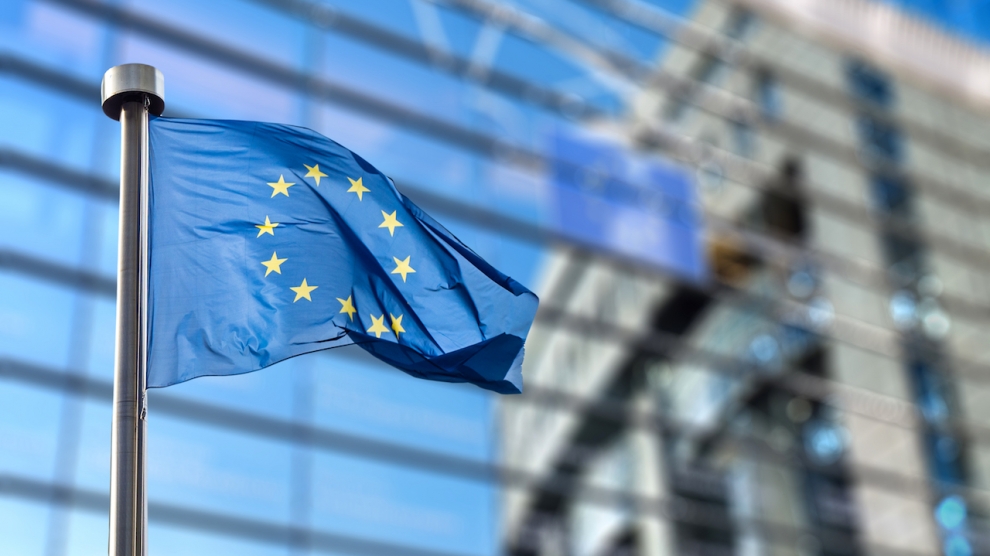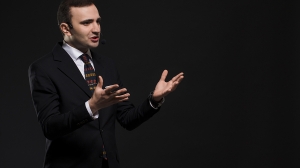The way in which Romania prepares for the presidency of the EU Council and how it finalises this are paramount for its role in a future Europe, says Cristian Buchiu, deputy head of the EU Representation to Romania. He talked to Jerry Cameron about the country’s ten years of EU membership.
Romania has been an EU member state for ten years now. Some argue it joined too early. How has that helped the country develop?
Romania joined the European Union at the right moment and its economic success since accession proves this. Its success story is both a function of its full economic rights within the single market and the EU policy of convergence, implemented with cohesion funds. During 2007-2013, over 35,000 new jobs were created and more than 400,000 people benefitted directly, each year, from projects aimed at investments in human capital.
Major projects were implemented ranging from national roads (356 km built) to waste management, from improved water supply and extended water networks to faster railways lines, and the list goes on. Not to be forgotten are the European-level projects such as the Extreme Light Infrastructure laser facilities in Măgurele, the cultural patrimony conservation at Monastery Dragomirna or the Cultural Palace in Blaj, the latter two of which were awarded EU prizes for cultural heritage.
What are the available funds now and what can they be spent on?
In the current financing period (which runs until 2020), Romania has been allocated €30.8 billion , under nine programmes, through the European Structural and Investment Funds.
They are to be used to develop infrastructure networks in energy and transport, to better protect the environment and to increase resources’ efficiency, to support transition to a low carbon economy, as well as in climate change adaptation and risk prevention. They are also designed to promote social inclusion and sustainable employment, including that for young people.
Last, but not least, their aim is to increase SMEs competitiveness, to provide quality education and vocational training, to support research and the ICT sector, and to provide technical assistance while increasing the efficiency of the public administration.
It is for Romania to find the best mix of projects to further develop its economy, so that both citizens and businesses have maximum benefits.
What does the EU funds absorption process look like now? There is criticism that this is not going fast enough. What are the reasons for that?
The absorption rate for the period 2007-2013 is estimated to reach around 90 percent. This was possible mostly because of efforts, from the regional policy commissioner, Corina Crețu, aimed atboth Romania and all EU Member States with absorption difficulties. She convinced the Commission to adopt initiatives that allow for the continuation of major projects beyond the 2007-2013 period and improved use of available funds to carry them out.
For the current period, the buzz word is simplification, also supported by Commissioner Crețu, who has spoken against “gold-plating” (the unnecessary complication of procedures for using EU funds at local levels) several times. Romanian authorities should answer this call for action and simplify.They need to support development of an efficient public administration, at all levels. Then, absorption capacity will no longer be an issue.
Romanians are one of the most EU-enthusiastic nations within the EU. What is the reason behind that and how/why will that strengthen in the future? Or will this enthusiasm decrease?
It is important for Romania to get actively involved in the construction of future Europe, by
participating in further integration initiatives. This is happening already, one example being the setting up of the European Public Prosecutor’s Office, with Romania as one of the founding Member States. There are a couple of fields were Romania would appreciate more progress, such as joining the Schengen area, as it already fulfils the requirements. Another is introducing the single currency. But these issues will not stop progress and integration in other fields.
In its ten years as a Member State, Romania has developed high standards in the fields of the fight against corruption, justice reform and respect of the rule of law, because of the Cooperation and Verification Mechanism. It has also made a major contribution to the protection of EU’s external borders, both at home and in Frontex operations, and it is a major factor for stability in its region.
Its role will be even more important in the first part of 2019, when it will hold the rotating
Presidency of the EU Council. It is a major task during an important time, when negotiations on the next financial framework and Brexit are to be concluded. The way in which Romania prepares for this task and how it would finalise it are paramount for its role in the future Europe.






Add Comment